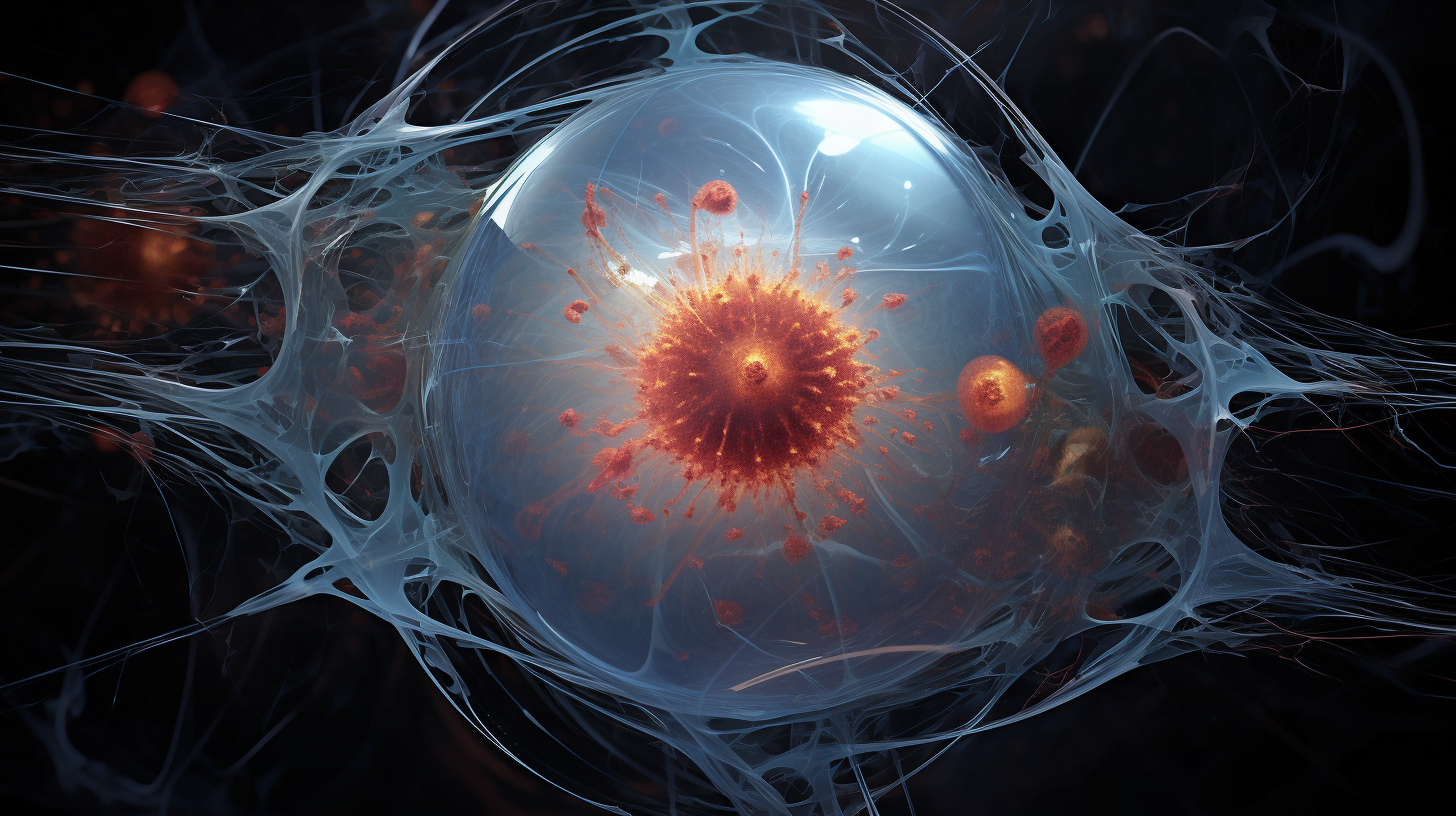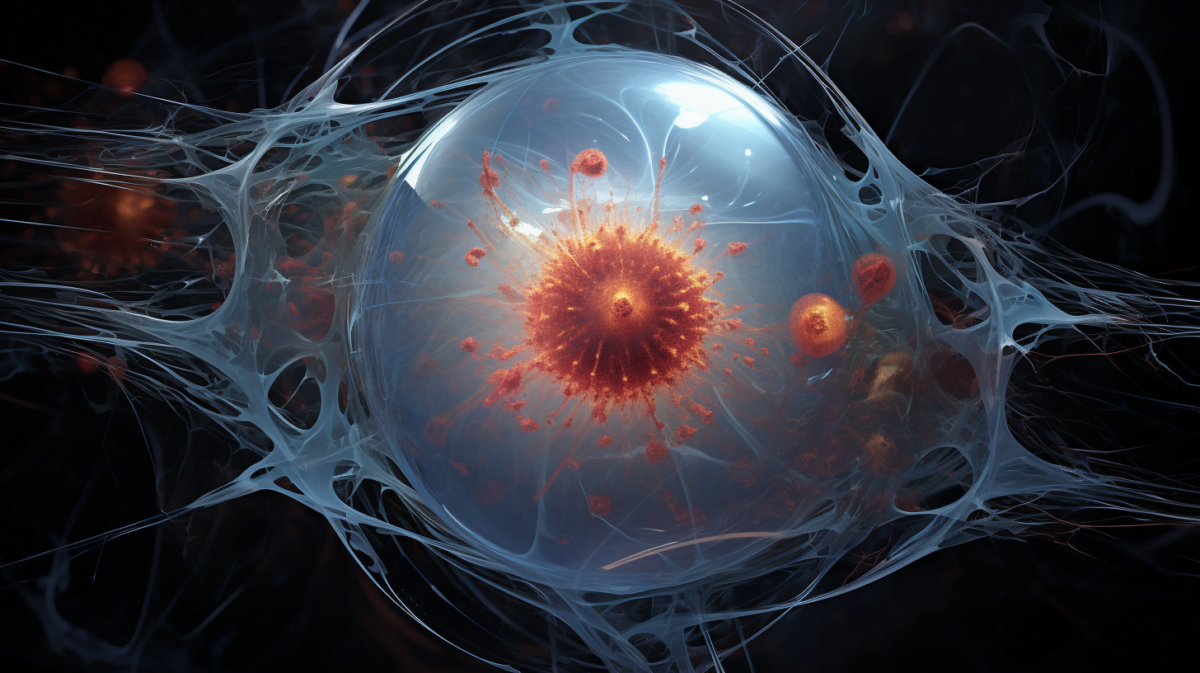
Researchers use AI models to advance drug delivery system for chronic eye diseases
Promising prospects for developing improved and more tolerable drug treatments for prevalent chronic eye diseases
 www.somaeu.com
www.somaeu.com
Researchers use AI models to advance drug delivery system for chronic eye diseases
Researchers from the Wilmer Eye Institute at Johns Hopkins Medicine have successfully utilized artificial intelligence models and machine-learning algorithms to predict the optimal amino acid components of therapeutic proteins for safe drug delivery to animal eye cells. This collaborative project with the University of Maryland offers promising prospects for developing improved and more tolerable drug treatments for prevalent chronic eye diseases like glaucoma and macular degeneration, affecting millions of individuals in the United States. The current drug therapies for these conditions, involving frequent eye injections or multiple daily eye drops, can be challenging to sustain and tolerate over time. Therefore, the scientific community has been focusing on developing delivery systems that can bind to eye cell components, extending the therapeutic effects of medications without compromising safety.
In 2020, the Food and Drug Administration approved an implantable device designed to release drugs for glaucoma treatment. Although this device offered longer-lasting effects compared to drops or injections, prolonged use in some cases led to eye cell death, necessitating a return to traditional methods like eye drops and injections.
The findings of the recent research, published in Nature Communications on May 2, demonstrate the accurate predictions made by AI-designed models regarding the ideal sequence of amino acids (peptides or small proteins) that can bind to specific chemicals in rabbit eye cells. This binding enables the safe and sustained release of medications over several weeks, reducing the need for strict and frequent treatment schedules. The focus of the investigation was specifically on peptides that bind to melanin, a pigment present in various specialized structures within eye cells.
The research team acknowledged previous studies on peptide-based drug delivery systems and their effectiveness. However, they aimed to identify peptides that could strongly bind to a widely distributed compound in the eye. To achieve this, they employed rapid machine learning techniques and artificial intelligence methods. Dr. Laura Ensign, the co-corresponding author of the paper and the Marcella E. Woll Professor of Ophthalmology at the Johns Hopkins University School of Medicine, explained that the team utilized machine learning algorithms to predict promising peptide sequences for drug delivery involving melanin.
The process began by inputting thousands of data points, including amino acid characteristics and peptide sequences, into the machine learning model. This allowed the model to "learn" the chemical and binding properties of different combinations of amino acids and eventually predict potential peptide sequences for effective drug delivery with melanin.
Through this artificial intelligence model, the researchers generated 127 peptides with varying abilities to penetrate specialized cells containing melanin, bind to melanin, and exhibit non-toxic properties. Among these peptides, the model identified HR97 as having the highest success rate in binding. The team also validated the properties of these peptides, such as their improved uptake and binding within cells, as well as the absence of any signs of cell death.
To test the model's prediction, the researchers attached HR97 to the drug brimonidine, which is used to treat glaucoma by reducing inner eye pressure, and administered it to adult rabbit eyes through injection. To assess the performance of HR97, the researchers measured the concentration of brimonidine in the eye cells by analyzing the drug's levels after administering the experimental drug delivery system. They discovered that significant amounts of brimonidine were present for up to one month, indicating that HR97 effectively penetrated the cells, bound to melanin, and released the drug over an extended period. Additionally, the team confirmed that when brimonidine was bound to HR97, it sustained its ability to lower eye pressure for up to 18 days, and there were no indications of eye irritation in the rabbits.
Dr. Ensign emphasized that future studies utilizing artificial intelligence to predict peptides for drug delivery could have significant implications for other conditions involving melanin and could be extended to target other specialized structures.
''We believe we are well on the way to finding solutions in trying to improve patient care and quality of life using drug delivery systems. The ultimate goal is creating something that we can translate out of the lab and actually make people's lives better."
Moving forward, according to Ensign, researchers will need to explore methods to further prolong the duration of drug action. They also aim to assess the success rate of the AI model's drug delivery predictions with different medications and evaluate safety in human subjects.
The study involved several other researchers, including Henry Hsueh, Usha Rai, Wathsala Liyanage, Yoo Chun Kim, Matthew Appell, Jahnavi Pejavar, Kirby Leo, Charlotte Davison, Patricia Kolodziejski, Ann Mozzer, HyeYoung Kwon, Maanasa Sista, Sri Vishnu Kiran Rompicharla, Malia Edwards, Ian Pitha, and Justin Hanes from the Johns Hopkins University School of Medicine. Additionally, Nicole Anders and Avelina Hemingway from the Johns Hopkins Sidney Kimmel Comprehensive Cancer Center, as well as Renee Ti Chou and Michael Cummings from the University of Maryland, were involved in the research.

